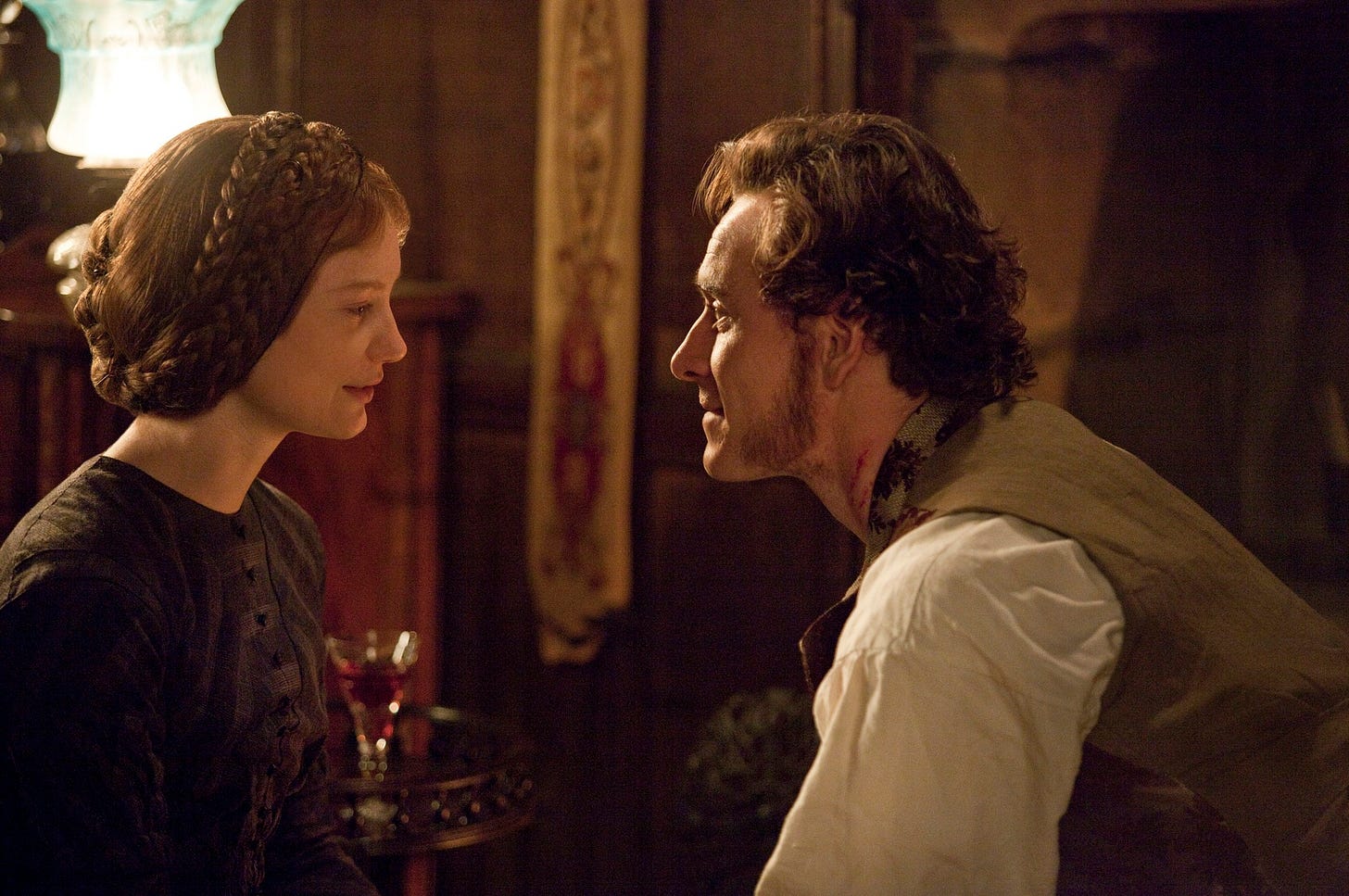Viewpoint Epistemology and Jane Eyre
The implications of Charlotte Brontë's incredibly well-written (male) character, Mr. Rochester.

“That woman was definitely written by a man.” The preceding remark I not infrequently hear bandied about to indict male authors for failing to grasp some essential aspect of womanhood. I will not endeavor to answer whether or not there actually are intrinsically feminine and masculine qualities. Frankly, this is much too great a philosophical question for me to answer at present. What I can say with great confidence, however, is that Charlotte Brontë perfectly captures the spurned and brooding, eccentric yet charming, character of Mr. Rochester in her mesmerizing novel, Jane Eyre.
I recommend everyone to pick up a copy1 ASAP.
In Chapter 15, Mr. Rochester explains, with great difficulty and emotion, the origin of Adele: the child under his tutelage (though, importantly, not his progeny) and Jane’s tutoring. Charlotte Brontë, writing as Jane Eyre, the female narrator, describes the tragedy of Mr. Rochester’s amorous misadventures in France with a remarkable degree of verisimilitude. The psychological profile Brontë crafts of Mr. Rochester, as he recounts his pitiful story of youthful naïveté, evinces2 a remarkable understanding of the man’s inner world. I recommend anyone who claims that Charlotte Brontë is incapable of writing a compelling, realistic male character to this single chapter, although any chapter set in Thornfield Hall (Mr. Rochester’s estate) would suffice.
In short, Charlotte Brontë proves that, if there is something essential about being a man, a talented female author is more than capable of depicting such a character. Analogously, if there is something essential about being a woman, it is possible for a talented male author to capture this in a female character. More generally, the immutable characteristics of an author do not prevent her from doing justice to her characters in possession of different characteristics. What’s more likely: the joy and sorrow, hope and despire, serenity and envy, highs and lows of love are universal and, as such, are experienced by all individuals in a remarkably similar manner. In that case, I guess I haven’t refuted viewpoint epistemology after all. Oh, well It was a tall order and I’m still in college—give me a few years/decades/a lifetime, will ya!?
There are many print editions, some more tactiley pleasing than others, as well as an HTML version provided gratis by Project Gutenberg.
Vocab word learned, along with many others, from Jane Eyre.



